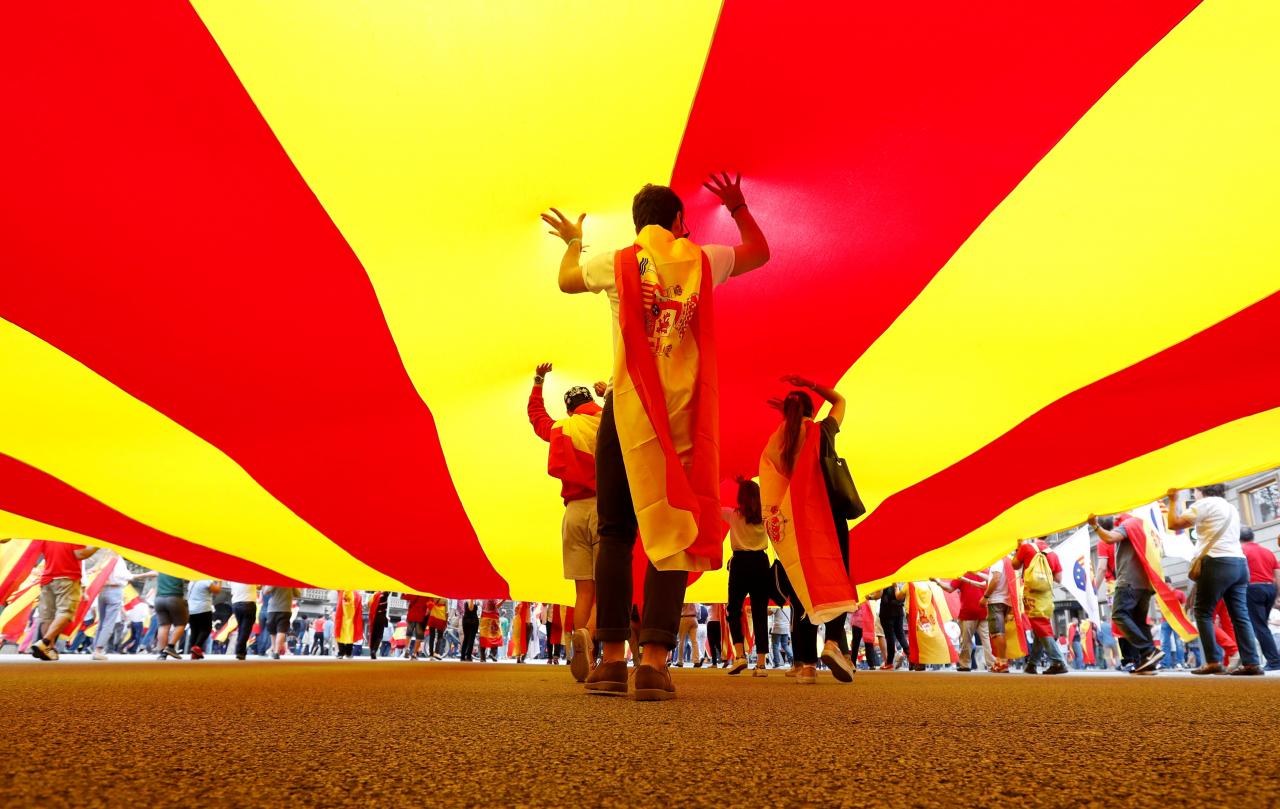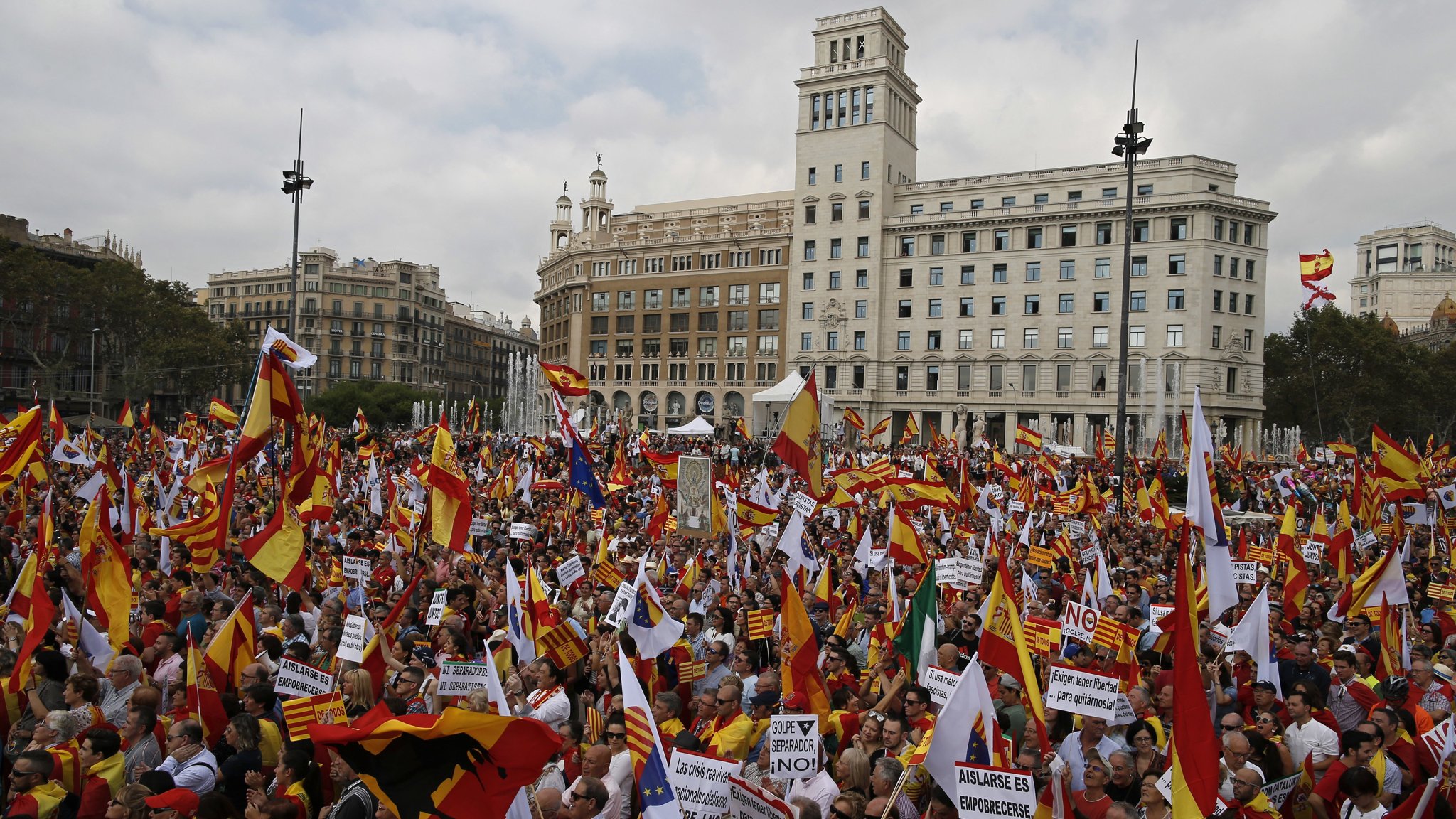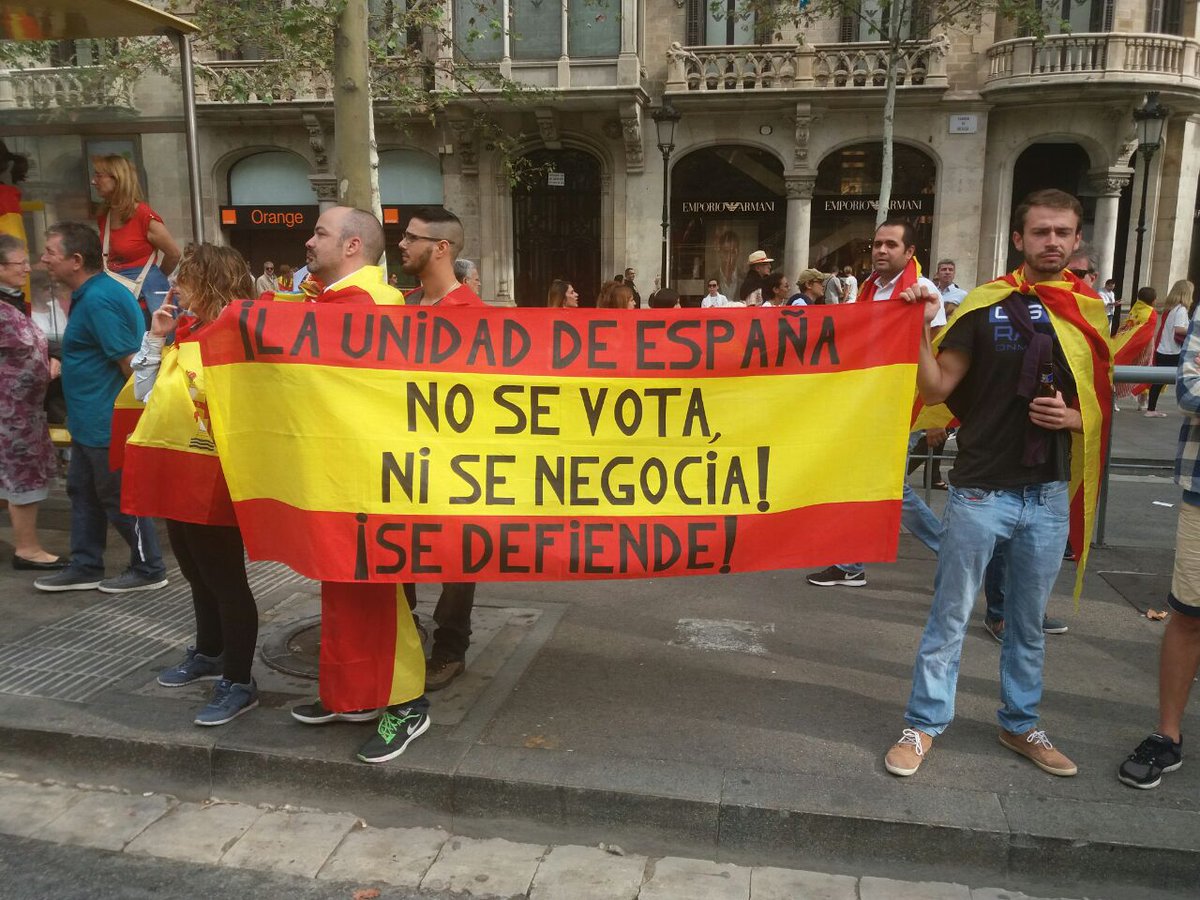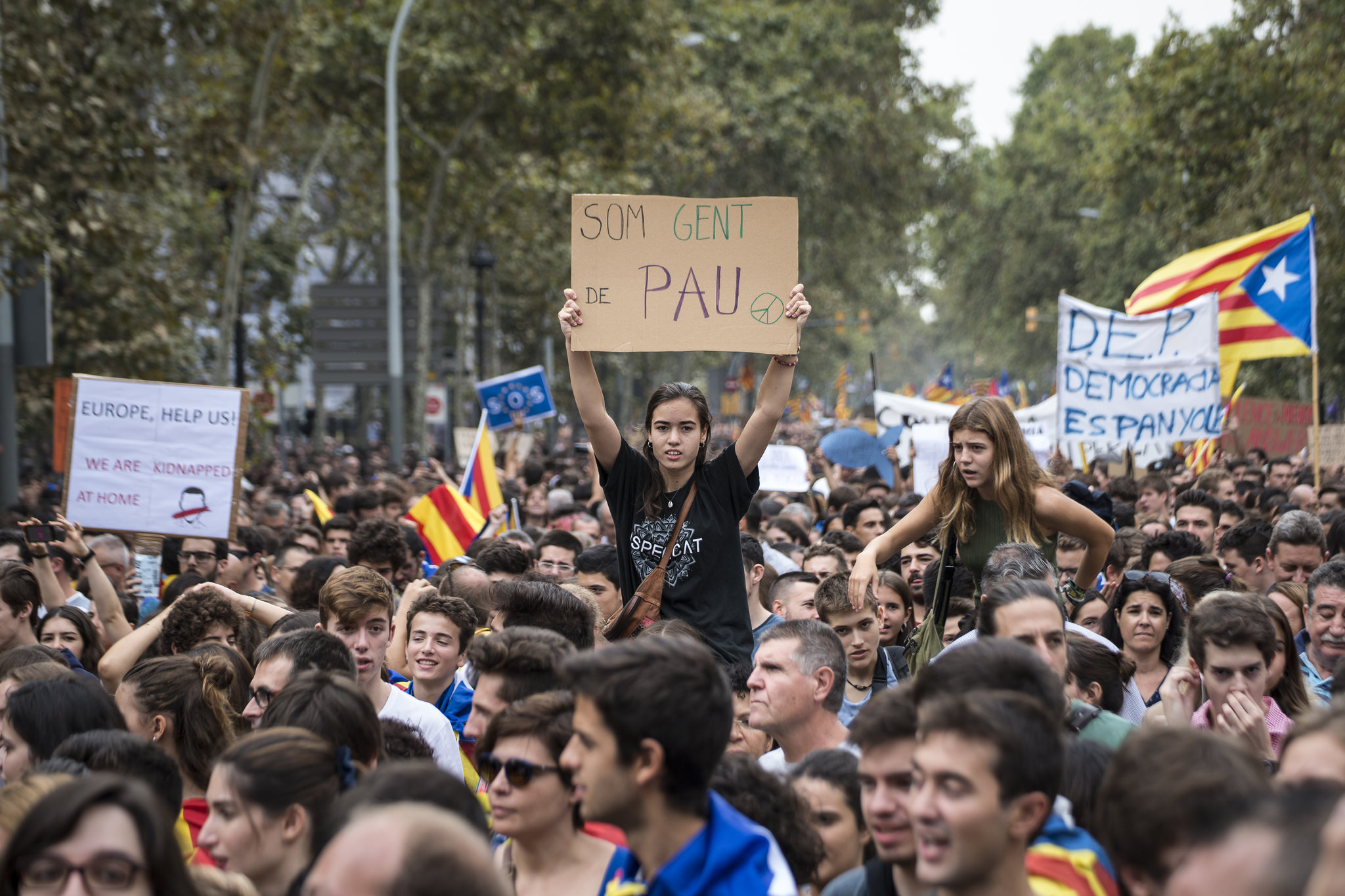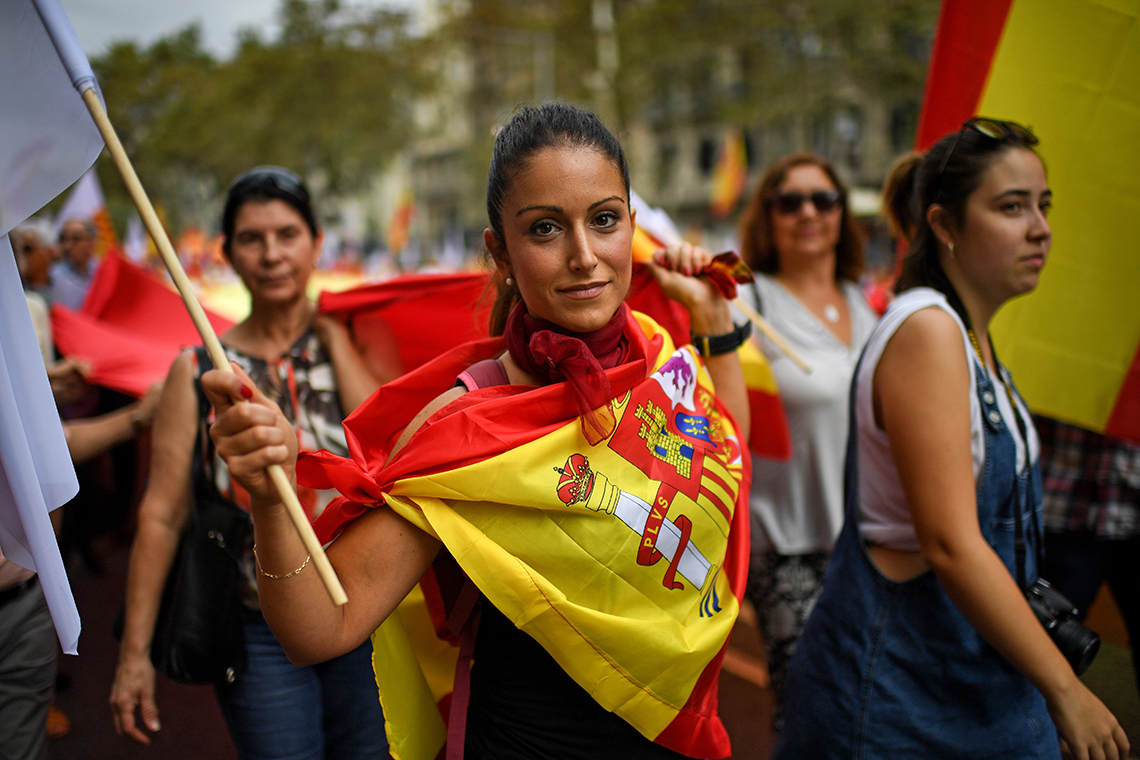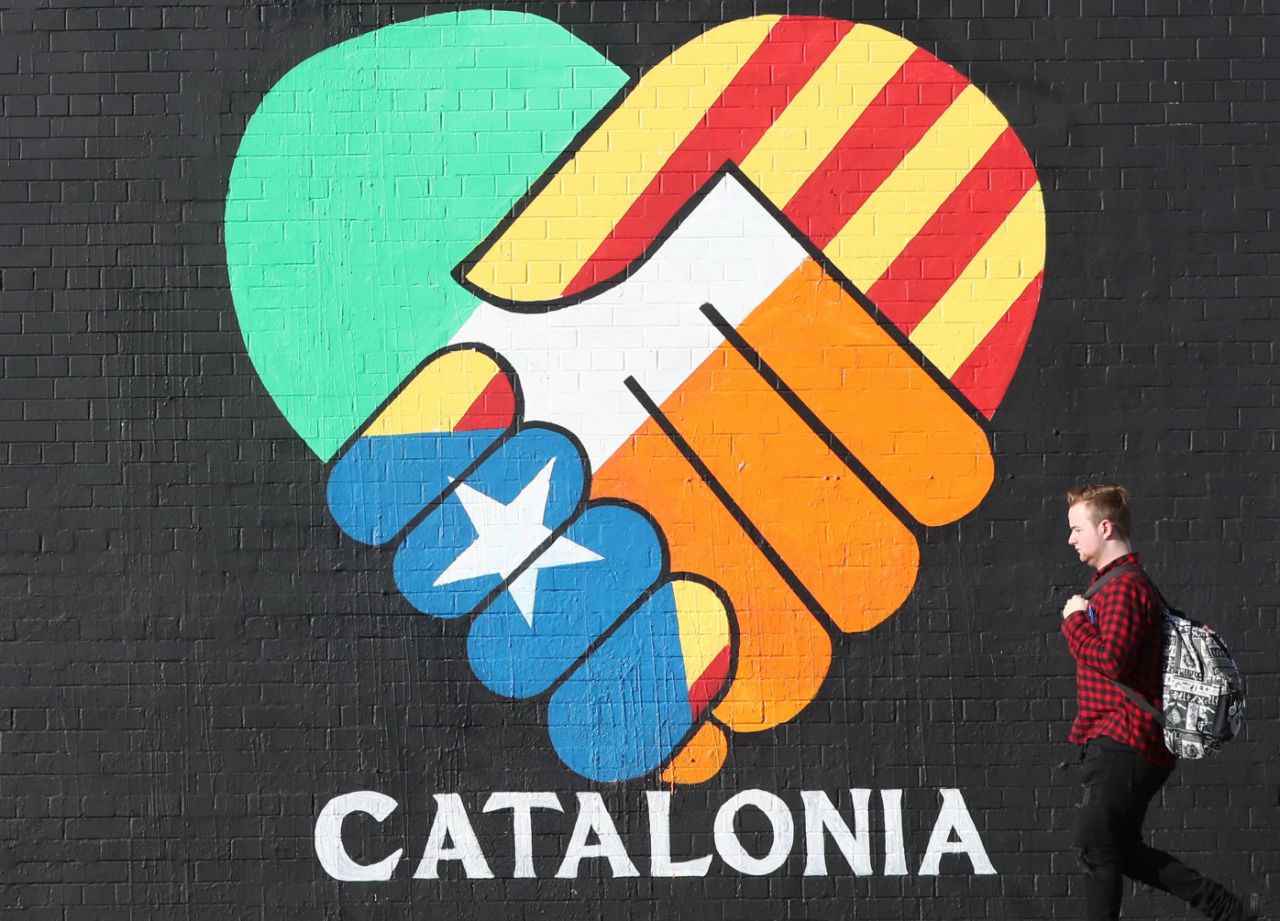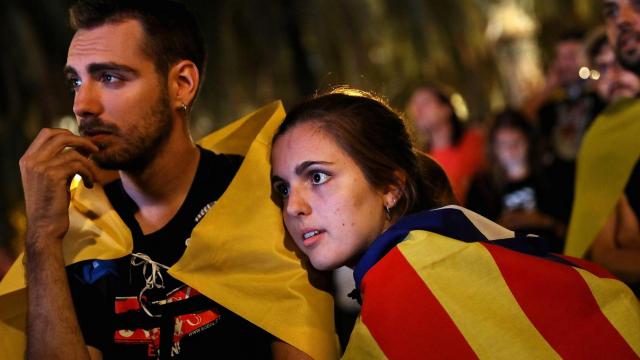
Spain's Prime Minister Mariano Rajoy has started the process to suspend Catalonia's Parliament. This comes in response to Catalan leader Carles Puigdemont's unilateral declaration of independence followed by his suspension of the process to call for dialogue with Madrid. On Sunday, the vast majority of Catalans voters chose independence in a referendum Spain tried to stop with violence.
A lack of dialogue between Madrid and Barcelona is a driver of the recent Catalan independence momentum, and a strong correlation can be drawn between what the politicians – of both Spain and Catalonia – are saying, and what is happening on the streets. As Occupy.com reported from the scene last week, Spain has pursued a hostile, at times violent suppression of Catalan democracy, reverting back to its fascist past.
In comparison, Catalans are demonstrating using non-violent words and actions. In Spain, too, there is growing democratic pushback against Madrid's intensifying authoritarianism.
Legality and legitimacy
To many, the question of Catalonia's Oct. 1 referendum boils down to arguments of legality and legitimacy.
Within the Spanish constitution, the Catalonian referendum was not legal. But this does not mean it was illegitimate. Pro-independence parties won a majority in the Catalonian Parliament in the last elections, supplying the mandate for an independence vote. Spain has catalysed the independence movement by trying repeatedly to criminalise it.
The Oct. 1 vote came on the anniversary of Spanish courts' legalisation of voting rights for women in 1931. This illustrates how changing laws reflect legitimacy in a society: Just because someone is legally barred from voting, then and now, does not make their voting illegitimate.
The results of the referendum suggest that 90 percent of the 2.26 million Catalans who voted opted for independence, while over 700,000 votes were reportedly stolen by the police, and some people were violently stopped from voting. Many abstained from voting altogether.
The case for a Catalonian Republic has always been overshadowed by Spain's fascist past. Recently these undertones became visible in broad daylight for the world to see.
Spain's fascist resurgence
A weekend after the vote, thousands gathered across Spain to protest Catalonian independence. Some were pictured from pro-Franco parties giving Nazi salutes, even though Spain prides itself as not having seen a similar surge in far-right populism as other European countries in recent years.
Similar scenes were repeated in Barcelona. On Sunday, Oct. 8, hundreds of thousands marched for Spanish unity. Like the Madrid crowds, photographers captured numerous examples of Spanish nationalists giving Nazi salutes and waving Franco flags, all in open view of Spanish state forces.
It was widely claimed that this crowd represented the "silent majority" in Catalonia. But there are question marks as to how much of the crowd were actually Catalan. A flyer shows free buses were on offer for people to travel from other parts of Spain to Catalonia for the demonstration. Specifically, there are reports of protesters pilling off the train from Madrid that morning.
The organisers of the march, Societat Civil Catalana, reportedly paid for free buses from across Spain, including 12 from Madrid. This new anti-independence movement was co-founded with input from Spain's ruling Popular Party, according to El Pais, a pro-Spanish national paper. Even the keynote speaker, Peruvian-born writer Mario Vargas Llosa, makes Madrid his home city.
The idea of bussing nationalists into Catalonia to demonstrate echoes Spain's bussing in of paramilitary forces who then attempted to stop the referendum. Late last month in southern Spain, crowds gathered and chanted "Go and get them". The violent, even war-like connotations recall the Spanish government's long history of using violent anti-Catalan rhetoric.
Recently, PP senior spokesperson Pablo Casado said Catalan President Puidegmont may face the same end as the leader of the democratic Spanish Republic Lluys Comanys if he declares independence. Comanys was shot by Franco in 1940.
Spain's increasingly violent rhetoric and actions are dangerous. They follow a long, brutal history of Spanish repression that has not been forgotten, including Franco's bloody reign. Even still this decade, mass graves from the Franco era are being unearthed.
But Spain is also, now, fighting back against its resurgent fascism.
A revived democracy movement in Spain
On the streets and squares, a network of Spanish activists has returned under slogans like "Let's talk," written in both Spanish and Catalan as #HablamosParlem. As of Wednesday, 19 people had made a camp, returning to Plaza del Sol in Madrid where, in 2011, hundreds of thousands camped in the 15M democracy movement, which helped spark the global Occupy movement.
Currently, Spain is clamping down on the right to protest and isn't allowing more than 20 people to form occupations. The group asserts: "If human rights are not respected, democracy is a dictatorship." Its manifesto calls for human rights to be respected in Catalonia, including the right to vote. If not, it says, all Spanish human rights are at threat.
Others filled Plaza de las Cibeles outside Madrid Town Hall and squares outside town halls across Spain. The protesters came wearing white, some with white flags as signs of peace. Speaking about neither party nor ideology, they supported dialogue between Catalonia and Spain.
Through communication channels, other similar protests and social platforms have quickly been spreading across Spain. Coordinator 25S is a new platform facilitating discussions in squares about what should happen in Catalonia. The question has previously been taboo in Spain, as the mainstream answer is that the status-quo is untouchable.
Other organisations are looking at how the post-dictatorship constitution should be rewritten, and academics are calling for a pluralist international committee to resolve the Catalan independence question. One of the central themes running through these movements is that the Spanish people are far better, and more tolerant, than their current administration.
The street-based forms of organisation in Spain – known as autogestion, or self-management – are mirroring what is happening in Catalonia. Autogestion mirrors the bottom-up organisation that enabled independence activists to organise a vote despite Spanish state violence. It also echoes calls from politicians like Barcelona Mayor Ada Colau for human rights to be respected and dialogue and de-escalation to occur between the Spanish and Catalan leaders.
The next few days will reveal whether Mariano Rajoy, the country's hardline conservative prime minister, is willing to take the offer of dialogue from Catalonia, or whether he will continue to push state violence. With the divisions and mass protest movement growing in Spain, Rajoy is not only playing a high-stakes game to maintain the Spanish state. He could also undermine his own very grip on power in Madrid.
3 WAYS TO SHOW YOUR SUPPORT
- Log in to post comments

